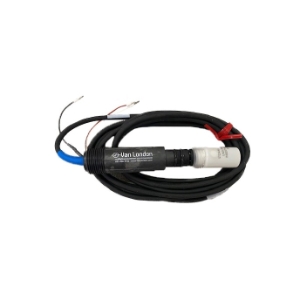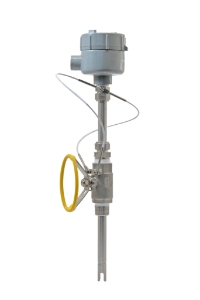Conductivity Probes - Van London
Conductivity probes measure the electrical conductivity of liquids. These probes typically consist of electrodes that immerse into the liquid to assess its ability to conduct electricity, which correlates with ion ...
pH probes, also known as pH sensors or electrodes, are essential tools in analytical chemistry and various industrial processes for measuring the acidity or alkalinity of a solution. These probes operate based on the principle of detecting hydrogen ion concentration in a given medium. Typically composed of a glass electrode and a reference electrode, pH probes generate a voltage signal proportional to the pH of the solution being measured. The glass electrode, sensitive to hydrogen ions, facilitates the conversion of chemical information into an electrical signal. Accurate pH measurements are crucial in diverse applications, ranging from scientific research and environmental monitoring to quality control in food and beverage production. pH probes find utility in laboratories, water treatment plants, pharmaceutical manufacturing, and many other industries where precise control of acidity or alkalinity is imperative for maintaining optimal conditions and ensuring the quality of end products. Regular calibration and maintenance are essential to uphold the accuracy and reliability of pH probes in various settings.
$443.68
$842.68
Subject to factory lead times
$460.82
$456.32
Subject to factory lead times
$631.24
Subject to factory lead times
$443.68
$842.68
Subject to factory lead times
$460.82
$456.32
Subject to factory lead times
$631.24
Subject to factory lead times





